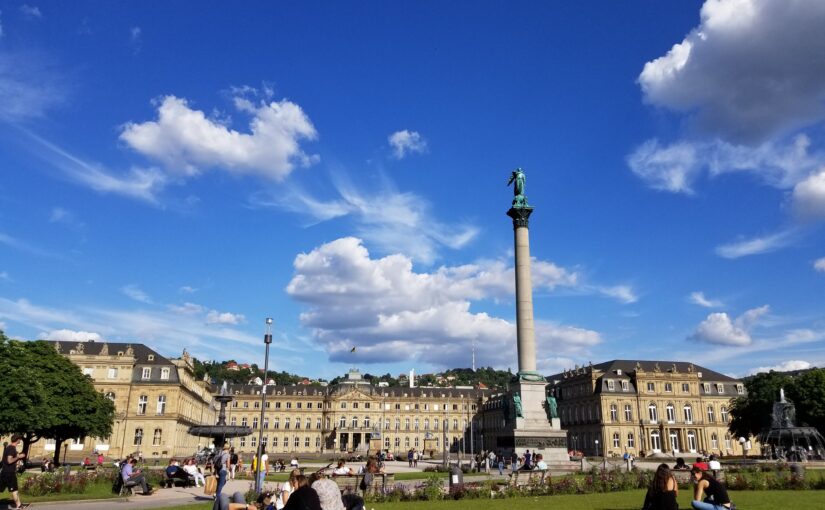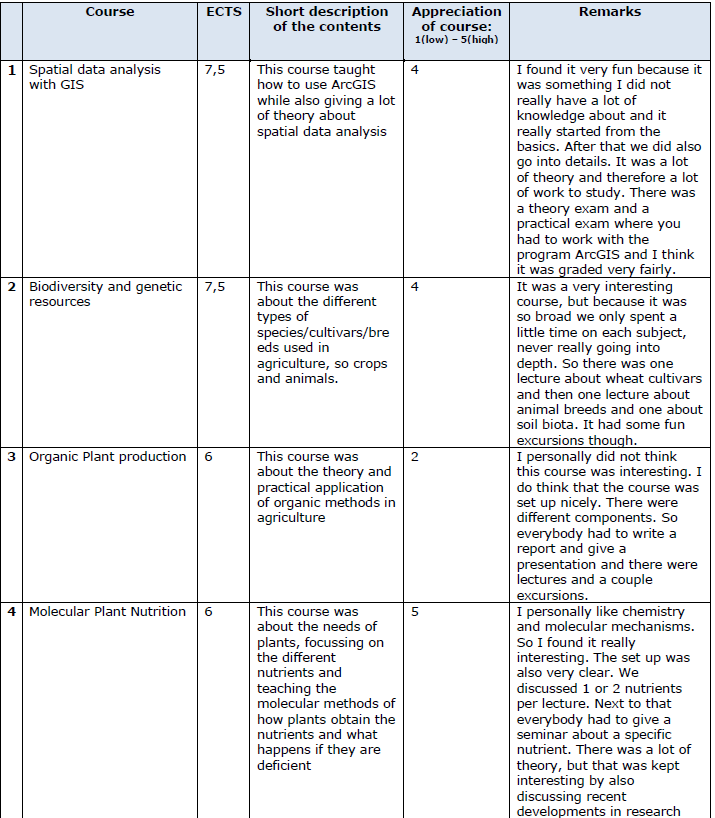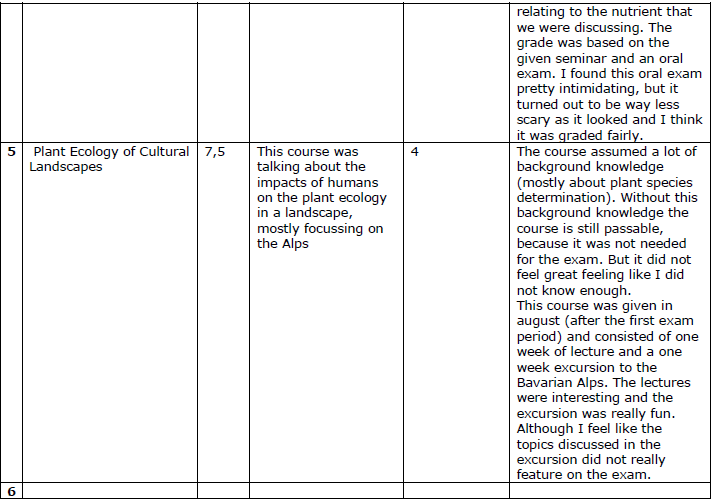Field of study in Wageningen: Plant Sciences
Study period exchange: 14/03/2023 – 27/09/2023
Country (exchange): Germany
City (exchange): Stuttgart
University (exchange): Hohenheim University
Faculty (exchange): Agricultural Sciences
2. Motivation for exchange
Why did you choose to go on study exchange?
I wanted to go on a study exchange because I wanted a change of scenery. I wanted to meet new people from different countries and also experience how studying at a different university would be. I wanted to see if I was independent enough to start over at a new place where I knew nobody and gain more independence and self confidence while doing so.
What is the reason you chose for this country/university?
I was denied for my first three choices (which were all English speaking countries) and I wanted to go to a place where I could talk to the locals. I also already spoke a bit of German, therefore I decided on Germany. The university is very good in the area of my studies and therefore I chose Hohenheim.
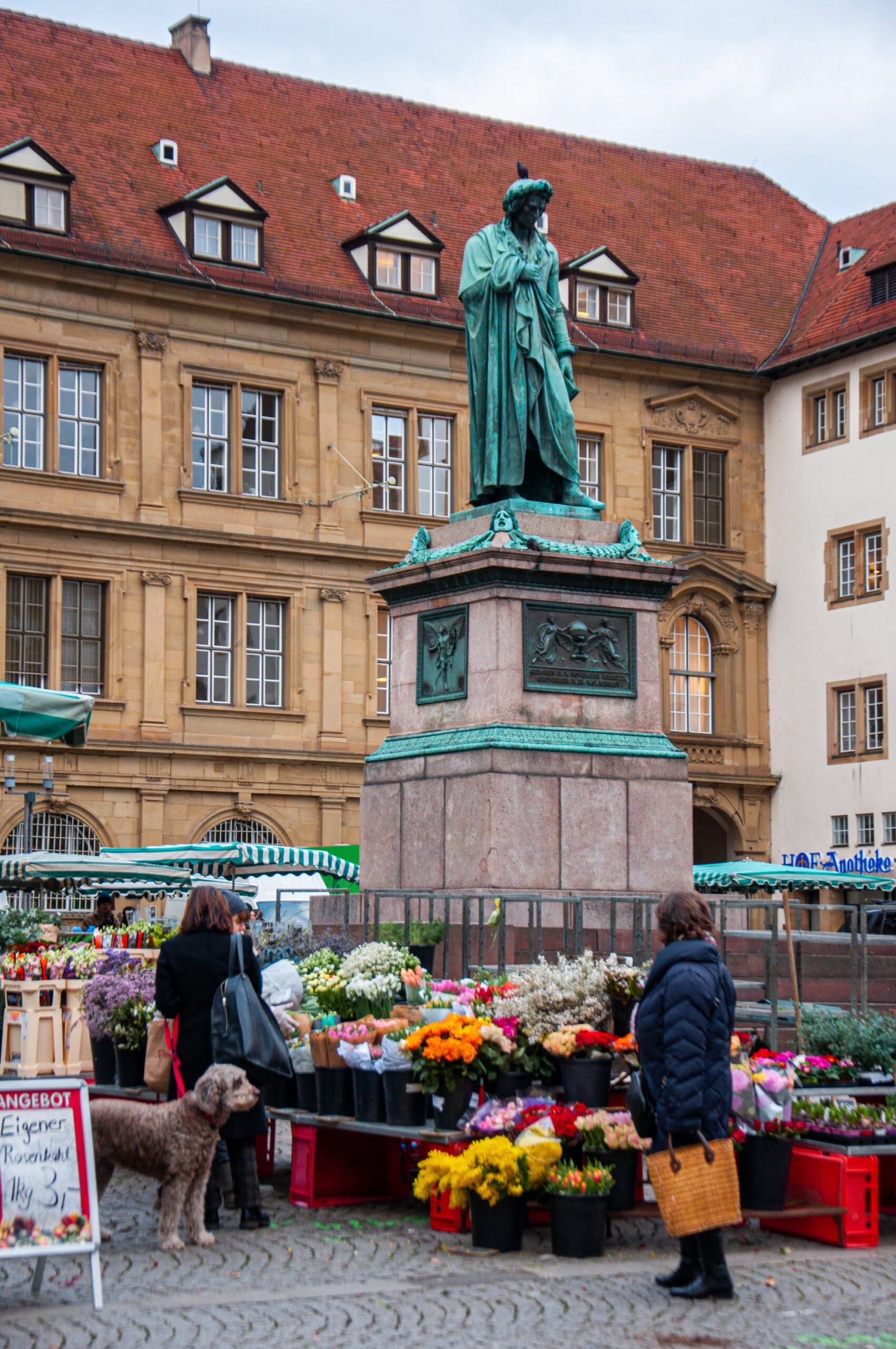
3. Accessibility to reach destination
Do you have any tips to reach your exchange destination?
Most places in Germany are easily reached by public transport. Stuttgart is also very nicely accessible by Flixbus (although it is not very comfortable, and you have to pay extra if you bring more then one piece of big luggage). Trains are more expensive, but if you plan the trip well in advance it is not too expensive, I think. Just keep in mind that the Deutsche Bahn loves to have trains arrive late and not the 5 to 20 minutes late that the NS sometimes has, but I have experienced delays of more then an hour without it being announced well in advance. From the hauptbahnhof in Stuttgart or the airport (where the flixbus arrives) it is another 30 minutes by U-bahn and/or bus, but there are loads of different options, so you don’t have to wait long.
4. University and studying
Could you provide some general information about the followed courses?
How is the study formalized?
I think the workload is differently distributed over the year then in Wageningen. There is a semester system. So you have courses that span the whole semester (most of the time these are 6 ECTS). But there are also so called “Block Modules”. These are 7,5 ECTS and take 1 month. These block modules are pretty intense with their workload, mostly because there is almost no self study time (like the self study week we have in Wageningen), meaning you have to keep up during the whole month. The registration method for the courses is also a bit vague and depends on the professor. This resulted in me not being able to do four block modules (7,5 x 4 = 30) and therefore having to substitute with 2 semester courses because of the different numbers of ECTS to reach 30 ECTS.

What is the culture of the university?
In my experience the professors are just as approachable as at the WUR. It is a bit more formal there, so certainly in the beginning of the semester I would address them formally and write my e-mails that way too. But there are a lot of courses that are pretty small (I have experienced courses with about 10 students) and then after a while it becomes less formal. But they were always willing to help. The local students are most of the time kind of separated from the international students. There is an international student organisation that is partly run by German students, but in the day to day life I did not interact with German Students a lot (except in my courses). I joined a sports team and that changed everything. There were mostly Germans there and that made me interact with these students more. Every German I have met was willing to interact with me and become friends, so that is not the issue. Most of them just don’t go looking for international friends.
What does the university offer the student additionally?
There are a lot of sport courses offered for very cheap by the university (E.g. I did handball twice a week for a whole semester for about 7 euros in total). The facilities themselves are not that great, old gym and the sports hall is basically a sauna in the summer, but it suffices. There is a mensa/cafeteria that is open every day from Monday to Friday. There you can eat lunch for somewhere between 2 and 5 euros. There were always a couple of options and most of the time also more then 1 vegetarian option (most of the time also at least 1 vegan). You can pay here with your student card which is very convenient.
5. Housing-travelling-living
What are the possibilities for housing?
The Studierendenwerk Tuebingen/Hohenheim is the institution that provides housing for a lot of students, in collaboration with the university. You can sign up to get a room and provide a preference for the building you want to live in. Unfortunately, you cannot deny the option given to you to get another one. So you just have to hope to get a place that you want. If you are on time with requesting a room, it is very likely that you actually get one. Most of these buildings are pretty old and not in a great state. I think this is the result from people switching rooms every semester. But there are also a couple of newly build (2019) buildings that still look nice. Because these rooms are from the Studierendenwerk, they have laundry machines that function with your student card. You can also rent rooms on the private market, but Stuttgart is very expensive and searching for a room while you are not yet there is very difficult.
What is the culture of the country like?
I haven’t noticed that many differences with The Netherlands. But because I spent so much time with international students as well, I noticed that I turned down my Dutch directness a bit, but around the Germans this was never an issue.

Could you give a general price indication of the place of residence compared to living in Wageningen?
I payed less in Hohenheim (around 250 euro a month) but I was in the oldest and crappiest building in Hohenheim, so I assume that the other buildings are a bit more expensive, but everything from the Studierendenwerk is not expensive. On the private market it can get pretty expensive depending on the house and location.
Could you give some information about public transport infrastructure?
If you live in Hohenheim you can walk everywhere (or buy a bike, but be aware, there are hills). Furthermore, your student cards gives you free public transport on weekdays after 18.00 and during the weekend the whole day. Stuttgart has his public transport system divided in zones, and as long as you stay in zone 1 (where Hohenheim is also located) you can get tickets under 3 euros for 1 way or around 5-6 euros for free travel for the whole day. So that is very nice. Last year (2022) there were the 9-euro tickets (free regional transport for 9 euros a month in June, July and august, I hope they will bring that back). This did result in very busy trains. Travelling to Stuttgart city centre takes around 40 minutes by bus and U-bahn.
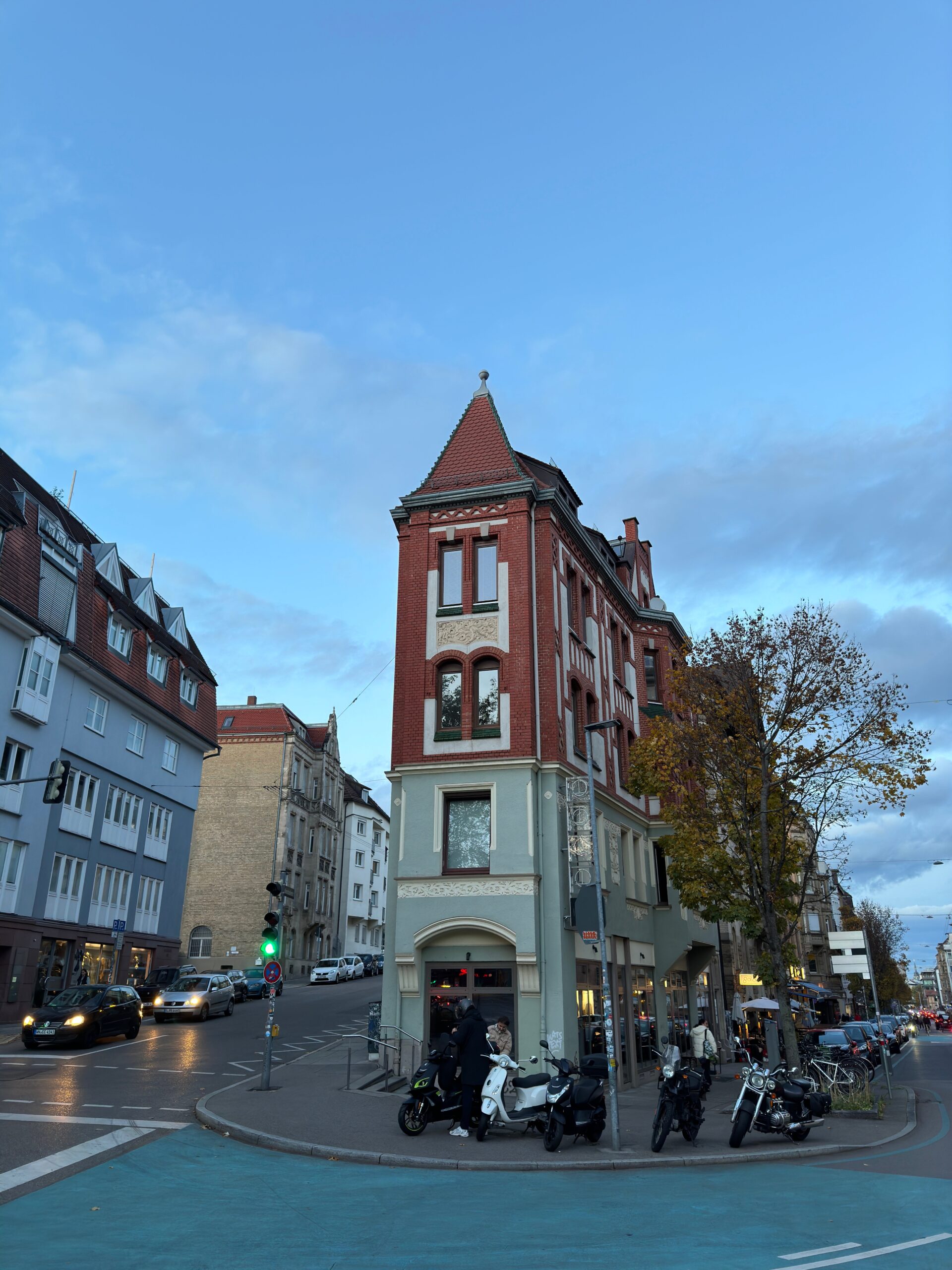
6. Free time
What are must-sees in the area?
I went to the city centre often. This has some nice buildings. There are some museums in the area. This all is easily done with public transport. I also went on some trips to other cities (Heidelberg, München, Füssen, Freiburg, Konstanz and some others). Because the public transport is pretty good, I went to most of these by train. But we also travelled by car sometimes.
What does not appear in the travel guide, but is worth a visit?
I think this is probably mentioned somewhere, but there are some nice places in Stuttgart where you can see the whole city (because it is located in a valley in between some hills) and this is pretty cool.
Do you have general tips and tricks about leisure time?
In Hohenheim, there is not much to do because it is so small. There is a student bar, the TMS, that is open on most Thursdays which is a nice place to come together and meet people. There are also some parties in the different dorms, those can be fun too. But I would recommend going to the city centre if you actually want to go out. Don’t let the travel time scare you, if you want to actually go out, you need to be in the city. There is also a night bus that goes from the city centre to Hohenheim. I would recommend going in a group and not walking alone. During the day I have never felt unsafe alone but at night I definitely have, even while not being alone.
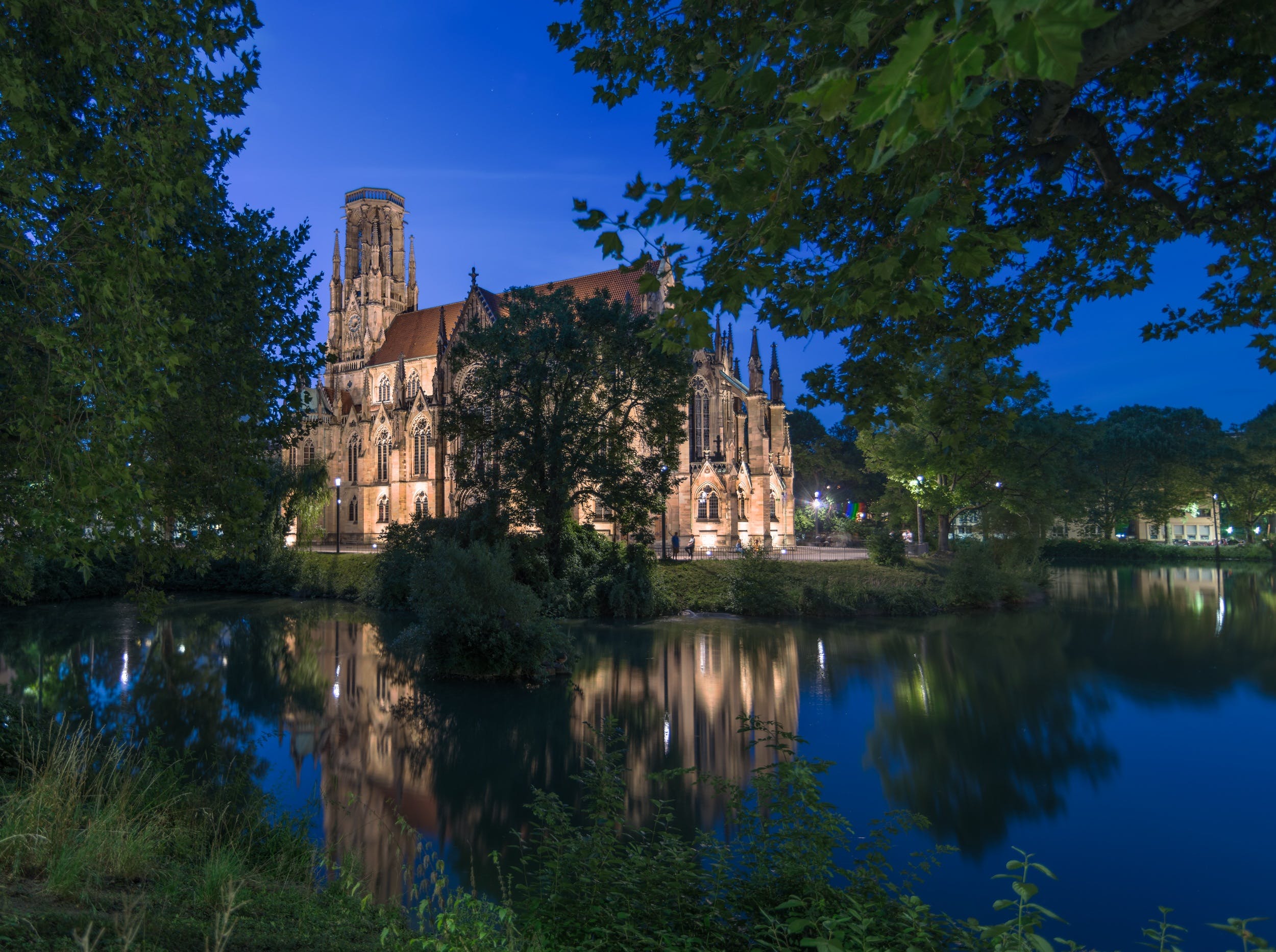
7. Challenges & best moment abroad
What was a challenge you have experienced?
The first week I was there for a language course, but this one was completely online. I knew of no way to meet people and therefore I was really alone in my room. The introduction week was 2 weeks later, so I needed to reach out to people myself. That was pretty intimidating. But I did it and therefore already made a group of friends before the introduction week had started.
What was your best memory abroad?
I joined the handball, and they were planning on going to a tournament in Konstanz. So, I decided to join them. We were there for four days sleeping in a tent, playing handball during the day, laying on the beach and swimming in the lake during the late afternoon/evening, eating pizza on the beach and then partying in the evening. I was at that time finally comfortable with speaking German and the guys and girls there really made me feel like a part of the team, even though I only joined 2 months before and most of them were there for way longer, so that was a lot of fun.

